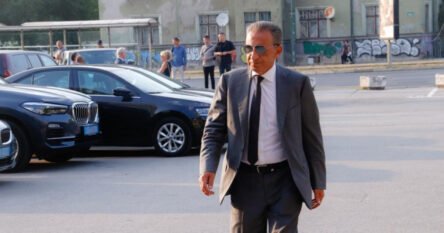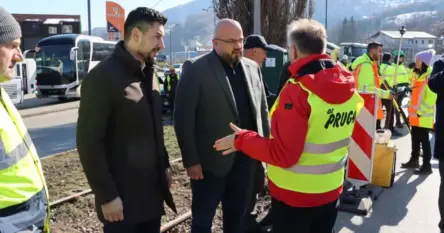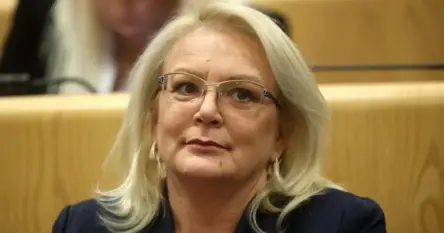Infoveza
Nepotism and enrichment of executives of RS healthcare system – an example, the “respirator affair
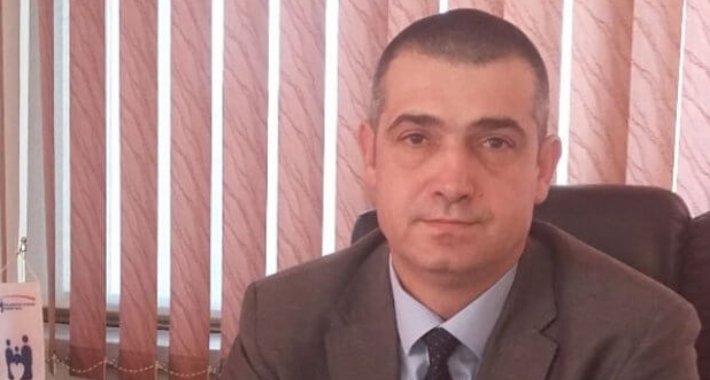
The story for itself is Nenad Stevandić, deputy director-general of the UCC and president of the United Srpska, who has been speculated to have been under investigation for some time, and the media reported on his recent purchase of apartments and real estate and the subsequent transfer of those apartments to other people. in order to conceal traces
During the year before last, the public learned that on May 14, the Agency for Medicines and Medical Devices of BiH gave its consent to the company “Medietik” d.o.o. for the import of 50 respirators whose purchase price was 2,975,000 KM. The contract states that the Health Insurance Fund of the Republika Srpska ordered 50 respirators at a price of 134,455 KM per piece.
Author: Stefan BLAGIĆ (Infoveza)
Fifty respirators cost FZO RS 7,865,624 KM with VAT. This case, as you will be able to see, has proven to be very complex and intertwined with many family-in-law ties.


 During the research of our portal, we found out that the key crime started with the mentioned company “Medietik”, owner and director Željko Babić. Babić’s wife is Ana Trišić Babić, advisor to the Serbian member of the Presidency of Bosnia and Herzegovina Milorad Dodik, who is one of the main NATO lobbyists in Republika Srpska (associate of the New Serbian Idea Association), and what is less known is that she is part of the staff of the late Željko Kopanja, the former owner of Nezavisne novine and Glas Srpske and Dodik’s media mogul.
During the research of our portal, we found out that the key crime started with the mentioned company “Medietik”, owner and director Željko Babić. Babić’s wife is Ana Trišić Babić, advisor to the Serbian member of the Presidency of Bosnia and Herzegovina Milorad Dodik, who is one of the main NATO lobbyists in Republika Srpska (associate of the New Serbian Idea Association), and what is less known is that she is part of the staff of the late Željko Kopanja, the former owner of Nezavisne novine and Glas Srpske and Dodik’s media mogul.
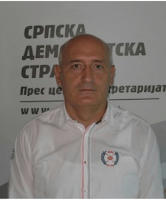 It is interesting that Željko Babić is the brother of Vladislav Vlado Babić (legal representative of the company Medietik), former secretary of the city board of the Serbian Democratic Party in Banja Luka, which was then led by Ognjen Tadić. After the SDS, both Tadić and Babić found political refuge in the Democratic People’s Alliance.
It is interesting that Željko Babić is the brother of Vladislav Vlado Babić (legal representative of the company Medietik), former secretary of the city board of the Serbian Democratic Party in Banja Luka, which was then led by Ognjen Tadić. After the SDS, both Tadić and Babić found political refuge in the Democratic People’s Alliance.
Dejan Kusturić, former president of the Football Club “Borac Banja Luka”, has been at the head of the Health Insurance Fund in the capacity of acting director for years (since the end of 2016).
By the way, it is generally known that after Kusturić, Milorad Dodik’s nephew Vico Zeljković was at the head of “Borac”. All of them have been in public for a long time in connection with the lucrative business of the Dodik family.
 Infoveza exclusively finds out that, through the director of the University Clinical Center Vlado Đajić, he asked for an “expert” opinion on HIF respirators from Professor Peđa Kovačević, head of the Clinic for Intensive Care and Surgical Branches, whose wife Tijana Kovačević, who was previously the Head of the Commission for medicines in the BiH Medicines Agency. She was then appointed at the suggestion of the RS Government, and on the orders of the real master of the health of the RS, Ranko Škrbić. For this expert opinion, to which Kovačević responded by e-mail, he was questioned on the premises of the RS Criminal Police.
Infoveza exclusively finds out that, through the director of the University Clinical Center Vlado Đajić, he asked for an “expert” opinion on HIF respirators from Professor Peđa Kovačević, head of the Clinic for Intensive Care and Surgical Branches, whose wife Tijana Kovačević, who was previously the Head of the Commission for medicines in the BiH Medicines Agency. She was then appointed at the suggestion of the RS Government, and on the orders of the real master of the health of the RS, Ranko Škrbić. For this expert opinion, to which Kovačević responded by e-mail, he was questioned on the premises of the RS Criminal Police.
Pedja Kovačević is a person who is associated in the media with many deaths at the UCC, about which many citizens have already written publicly.
As we have learned unofficially, he is under the direct control of Ranko Škrbić and it is speculated that he is a possible successor of Vlado Đajić at the head of the UCC.
Our portal first contacted the State Investigation and Protection Agency about the whole case, in order to check “where it got stuck” with the investigation of the criminal procurement of respirators. SIPA referred us to the Prosecutor’s Office of BiH, which replied that it had forwarded the case to lower instances.
“The case was handed over to the Republic Public Prosecutor’s Office of the Republika Srpska as the really competent prosecutor’s office,” the Prosecutor’s Office of BiH replied.
We hit the wall there, because after we sent an official inquiry to the Republic Public Prosecutor’s Office, we never received an answer.

Interestingly, we also asked prof. at the Faculty of Economics in Banja Luka and the candidate for one of the incumbent positions in the upcoming general elections, Jelena Trivić, but we never received an answer from her.
Where does their money come from?
It has been known for a long time that big money is “turned over” in health care, but lately, there has been more and more talk about the wealth and real estate of the heads of health care institutions. Many people, especially health care workers, testify to this wealth. Our source from the UCC asks a question related to the wealth of the director for economic affairs, Aleksandar Todorović.
“How is it possible that an ordinary director for economic affairs at the UCC, Aleksandar Todorović (husband of Nevena Todorović, director of the Health Center in Banja Luka), bought a new VW Tuareg with luxury equipment in black worth 185,000 KM, identical to the one he bought Ranko Škrbić “, asked our source and added that it was worth mentioning that the Todorović couple are members of the largest ruling party in Serbia and close associates of the “master of health”.
In addition, the Ministry of the Interior and security agencies are interested in luxury limousines owned by the director of the largest health institution in Serbia, Vlado Đajić, as well as a large number of real estate, which he could hardly provide despite the high salary he receives.
The story for itself is Nenad Stevandić, deputy director-general of the UCC and president of the United Srpska, who has been speculated to have been under investigation for some time, and the media reported on his recent purchase of apartments and real estate and the subsequent transfer of those apartments to other people. in order to conceal traces.
It remains to be seen whether public prosecutor Miodrag Bajić will have the strength to enter the case or whether the actions against the Institute of Public Health of Republika Srpska were just “disciplining” the good soldier Nenad Stevandić, who recently became a citizen of Belgrade buying an apartment not far from Vuk’s monument.
Damjan Ožegović from Transparency International says for our portal that apart from the regular salaries that the heads of health institutions earn, it is evident that many of them perform two or more public functions, some of which are in direct conflict of interest according to current regulations. Managers usually perform additional functions in parliaments, public companies or associations financed from public budgets. Therefore, these persons do not receive only one salary, but multiple salaries and/or benefits, and this is difficult to trace since there are currently no publicly published official registers.

The possibility of gaining property benefits from various corrupt practices in the field of health care, such as granting a privileged position in public procurement procedures, falsifying official documents, such as granting disability pensions, receiving gifts and benefits for the privileged position of certain patients or speeding up procedures, should not be ruled out. Many scandals have so far shaken our public in the field of health, but unfortunately few have had a final judicial epilogue. It is worth recalling the most recent scandals with the supply of oxygen, the purchase of protective equipment during the pandemic, the purchase of thermal cameras, but also some of those from five years ago from Banja Luka, Brčko and Trebinje. “Health care is not immune to corrupt actions, but only a significant number of processing cases of corruption on a higher level, ie the highest officials, would give a message of possible punishment to employees in lower positions that these actions are not worth it,”explains Jugović.








